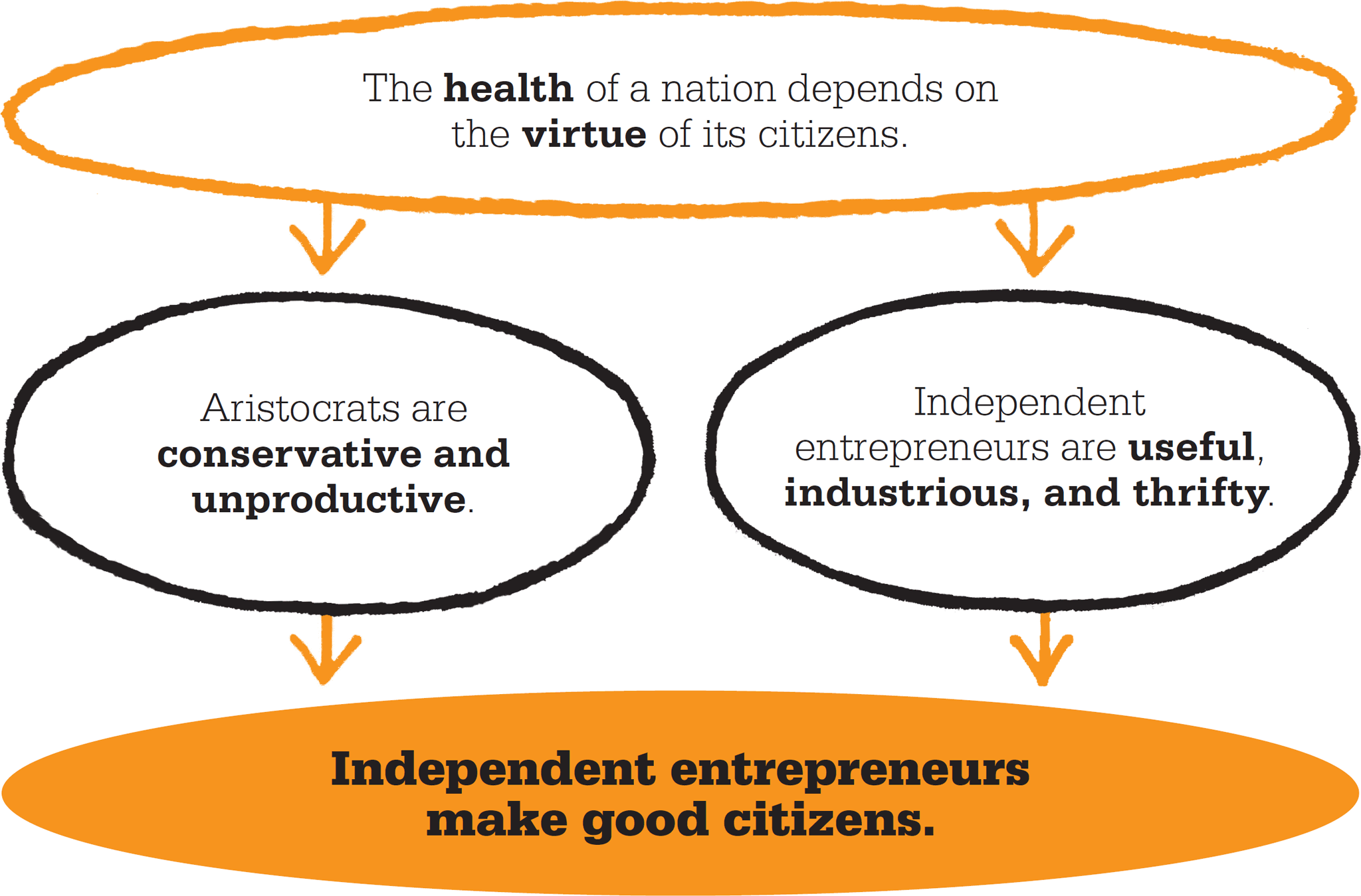
IN CONTEXT
Liberalism
Entrepreneurial citizens
1760 Britain seizes France’s North American colonies, raising the stakes in its land acquisition in the New World.
1776 Thirteen colonies declare their independence from Britain to become the United States of America.
1879 Thomas Paine’s Declaration of the Rights of Man and of the Citizen is published in France.
1868 Black people are granted citizenship in the United States following the ratification of the 14th amendment to the Constitution.
1919 Women are granted the vote in the US through the 19th amendment.
The period before and after the independence of the United States from British rule was revolutionary intellectually as much as politically. Labeled the American Enlightenment, its leading thinkers were inspired by European Enlightenment writers such as John Locke, Edmund Burke, Jean-Jacques Rousseau, Voltaire, and Montesquieu. When designing their new system of government, the Founding Fathers of the new state favored liberal and republican principles. They opposed centralized, absolute authority and aristocratic privileges. Instead, pluralist ideals, protection of individual rights, and universal citizenship were the cornerstones. The view of human nature that underpinned this new system of government stemmed from classical republicanism, which saw civic virtue as the foundation for a good society. In the view of one of the Founding Fathers, Benjamin Franklin, individual entrepreneurs made good, virtuous citizens. In this, Franklin articulated the future capitalist spirit of the United States.

Entrepreneurial virtue
While liberals tend to focus on individuals’ rights—for example, to life and property—classical republicans place greater emphasis on the individual’s duties to the commonwealth as a citizen, and the virtues that citizens need to fulfill this role. The concept of virtue was important to earlier classical republicans, such as Italian Niccolò Machiavelli, in describing the characteristics of rulers. But the virtues of individual citizens were rarely discussed.
"Lose no time; be always employ’d in something useful; cut off all unnecessary actions."
Benjamin Franklin
Franklin discusses virtue at an individual level. In his view, a prosperous nation is built on the virtues of individual, hard-working, and productive citizens, not on the characteristics of the ruler or a social class such as the aristocracy. In common with many of Europe’s Enlightenment thinkers, Franklin believed that merchants and scientists were the real driving forces of society, but he also placed more emphasis on the importance of personal traits and individual responsibilities. He regarded entrepreneurship to be a personal trait that had important virtue.

The entrepreneurial spirit and philanthropy shown by Bill Gates, founder of Microsoft—the pioneering manufacturer of PCs—are central to Franklin’s notion of good citizenship.
Promoting the public good
Entrepreneurship is today widely associated with the capitalist system. For example, to the Austrian economist Joseph Schumpeter, entrepreneurship was central to the process of “creative destruction” that shapes the capitalist system. However, Franklin’s view of entrepreneurs differed markedly from the modern image of a capitalist businessman. Firstly, he saw entrepreneurship as a virtue only when it promoted the public good, via philanthropy, for example. Secondly, he saw an important role for voluntary organizations in order to temper individualism.
BENJAMIN FRANKLIN

Benjamin Franklin was the son of a candle- and soapmaker who rose to become a statesman, scientist, and inventor. Born in 1706 in Boston, he played a leading role in the long process that brought the United States into being. As a statesman, Franklin opposed the British Stamp Act, was the US ambassador in London and Paris, and is considered one of the most important Founding Fathers of the United States.
As a scientist, Franklin is best known for his experiments with electricity. Among his many inventions are the lightning rod, the open stove, bifocal glasses, and the flexible urinary catheter. As an entrepreneur, he was a successful newspaper editor, printer, and author of popular literature. Although he never occupied the highest office in the United States, few other Americans have had a more lasting influence on the country’s political landscape.
Key works
1733 Poor Richard’s Almanack
1787 United States Constitution
1790 Autobiography
See also: John Locke • Montesquieu • Edmund Burke • Thomas Paine • Thomas Jefferson
